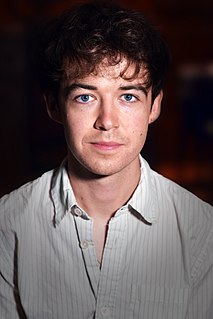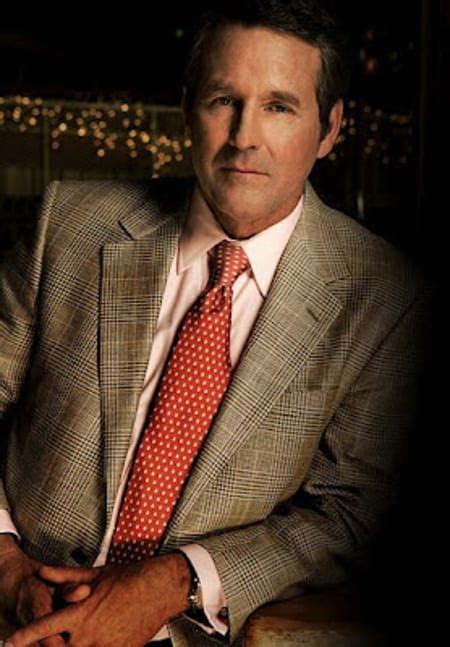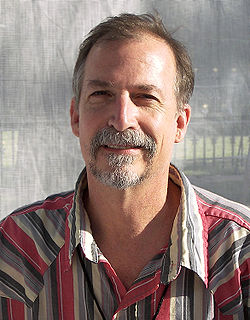A Quote by J. L. Austin
Are cans constitutionally iffy? Whenever, that is, we say that we can do something, or could do something, or could have done something, is there an if in the offing--suppressed, it may be, but due nevertheless to appear when we set out our sentence in full or when we give an explanation of its meaning?
Quote Topics
Related Quotes
We may spark something or set something in motion in another person's life by something we've done. Perhaps in a car accident we injure someone. Perhaps as a manager, we fire someone. There are a lot of things that could precipitate something negative in another person's life. But does that make us responsible for everything that follows from it? Is there a statute of limitations?
A hero does for others. He would do anything for people he loves, because he knows it would make their lives better. I am not that kind of person, but I want you to be. You could give something to her, to me, to those children in the quarter. You could give something I never could ... The white people out there are saying you don't have it-that you're a hog, not a man. But I know they are wrong.
Never trust the translation or interpretation of something without first trusting its interpreter. One word absent from a sentence can drastically change the true intended meaning of the entire sentence. For instance, if the word love is intentionally or accidentally replaced with hate in a sentence, its effect could trigger a war or false dogma.
One big power of an actor is knowing when to say no to something. It can be very tempting to say yes to something, because you're flattered that somebody would like to work with you, and your ego sort of takes over, but it's important to ask whether there could be something you could add to a project by being part of it.
Throw away my book: you must understand that it represents only one of a thousand attitudes. You must find your own. If someone else could have done something as well as you, don’t do it. If someone else could have said something as well as you, don’t say it—or written something as well as you, don’t write it. Grow fond only of that which you can find nowhere but in yourself, and create out of yourself, impatiently or patiently, ah! that most irreplaceable of beings.
Eventually, when I got the 'Meadowland' script, I saw something in it that made me think I could make something special out of it, something that could work with my style. Emotionally, I connected to it. I thought, 'If I feel this way just imagining it, maybe we can make that happen on screen and make people feel something when they watch it.'
He misses the feeling of creating something out of something. That’s right — something out of something. Because something out of nothing is when you make something up out of thin air, in which case it has no value. Anybody can do that. But something out of something means it was really there the whole time, inside you, and you discover it as part of something new, that’s never happened before.
Illness is something out of balance, rather than something within balance. It's been something that is created and it's been created for a purpose and a reason, and that purpose or reason may not be obvious to the person that has the disease. Nevertheless, there is something going on and it's not always easy to find that out.
Take the stupidest thing you've ever done. At least it's done. It's over. It's gone. We can all learn from our mistakes and heal and move on. But it's harder to learn or heal or move on from something that hasn't happened; something we don't know and is therefore indefinable; something which could very easily have been the best thing in our lives, if only we'd taken the plunge, if only we'd held our breath and stood up and done it, if only we'd said yes.
It is true that my discovery of LSD was a chance discovery, but it was the outcome of planned experiments and these experiments took place in the framework of systematic pharmaceutical, chemical research. It could better be described as serendipity. That means that you look for something, you have a certain plan, and then you find something else, different, that may nevertheless be useful.
You don't just find an empty museum and say, "I should do something here." I was looking for another kind of venue or exhibition format. I was trying to find a site where something could happen over a long period of time - something that could slowly transform itself and the place as it went. And I was also trying to stand out of the art-world system. Strangely enough, I stumbled on vacant museum.









































